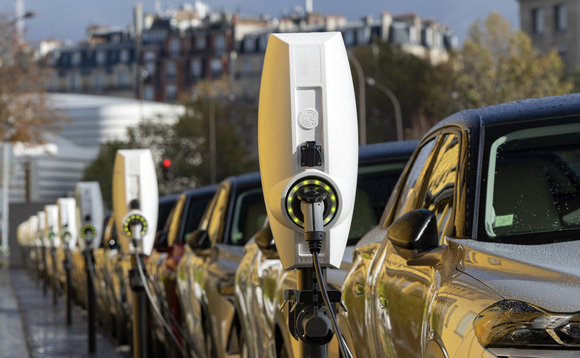
Latest industry figures show electric models continue to grow in demand as car market starts to recover from supply chain issues
Battery electric vehicles (BEVs) represented almost a quarter of all new car deliveries in February, with uptake of plug-oin models now expected to near half a million units in 2023, according to new figures from the Society of Motor Manufacturers and Traders (SMMT).
The trade body today provided its monthly sales update, confirming BEV deliveries in February rose 18.2 per cent year-on-year, while sales of plug-in hybrids (PHEVs) ticked up one per cent. Combined, plug-in models accounted for around 22.8 per cent of all deliveries last month.
As such, the trade body said it now expects around 488,000 PHEVs and BEVs to join Britain's roads in 2023, with manufacturers brining more than 40 new plug-in models to the market.
In contrast, sales of new diesel models were down 14.6 per cent year-on-year during february, although sales of petrol cars continued their recovery, rising 34.9 per cent compared to last year.
The SMMT welcomed the strong sales performance, but warned the continued growth in the EV fleet would "inevitably" increase demand for charging infrastructure. While it acknowledged the "welcome" £56m of new EV infrastructure funding announced by the government last week, it stressed there was still a "clear requirement" for binding targets which ensure that the charge point rollout accelerates.
As the UK car market prepares for a year of double-digit growth, the SMMT suggested the Spring Budget represents an important opportunity to help shape Britain's switch towards zero emission models and "deliver an equitable transition for all".
It called on the governmnt to develop a long-term plan for charge point investment, align VAT on public charging with domestic charging, and review the Vehicle Excise Duty premium, which it argued could unfairly penalise EV buyers switching to this "inevitably more expensive technology" in the future.
Overall, the SMMT's figures showed that the UK's new car market rose by 26.2 per cent during the period, which marks its seventh consecutive month of growth.
The trade body acknowledged that February is typically a slow month in the market, ahead of the March plate change. However, it found that easing supply chains shortages helped to steer the market closer to pre-pandemic levels, which were down just 6.5 per cent on the same month in 2020.
Mike Hawes, SMMT chief executive, said there was a "growing confidence" in the UK automotive sector.
"It is vital, however, that government takes every opportunity to back the market, which plays a significant role in Britain's economy and net zero ambition," he said.
"As we move into 'new plate month' in March, with more of the latest high-tech cars available, the upcoming Budget must deliver measures that drive this transition, increasing affordability and ease of charging for all."
In other automotive news, taxi company Addison Lee this morning announced it has made progress towards its ambition to completely electrify its fleet by 2023 with news it has opened new EV charging facilities near Heathrow Airport with charge operator ChargePoint.
Two new ChargePoint ultra-rapid EV chargers with dual charging capacity are being installed at its West Drayton Fleet hub site near the airport. Addison Lee said the facility means four drivers will be able to charge at the same time and with access to ChargePoint's software, they will be able to easily see if the stations are in use, so they do not waste time or battery driving to an unavailable charger.
Addison Lee said it already has 1,000 EVs in its fleet, which it aims to fully electrify this year. So far it has provided its drivers with support for home charging, as well as securing a number of deals which mean its drivers have access to more than 4,000 rapid chargers across London.
The cab company has estimated that once its fleet is fully electric it will save up to 20,000 tonnes of CO2 per year.